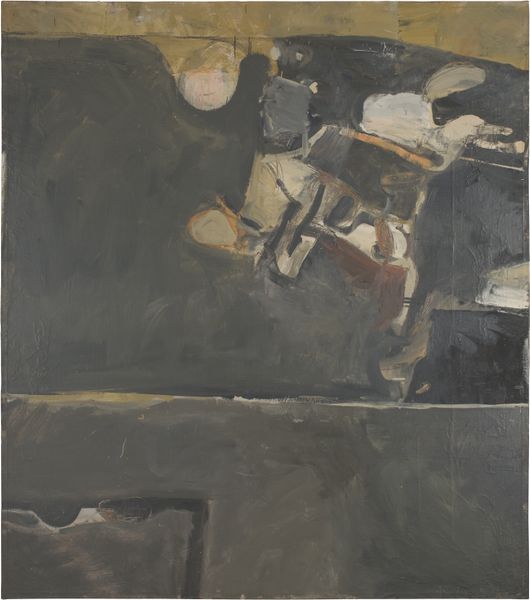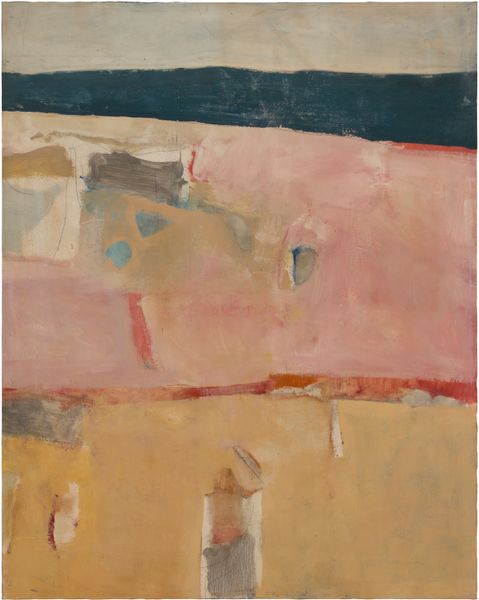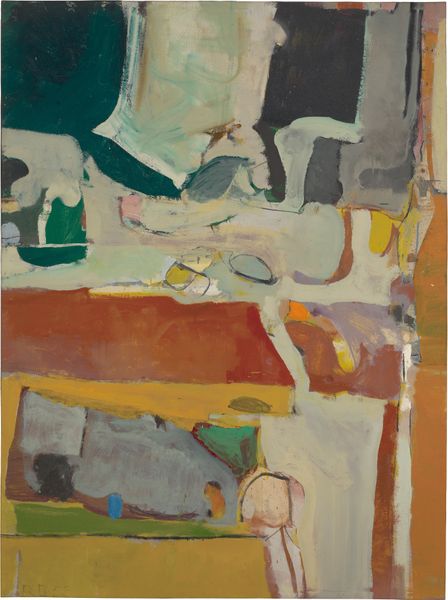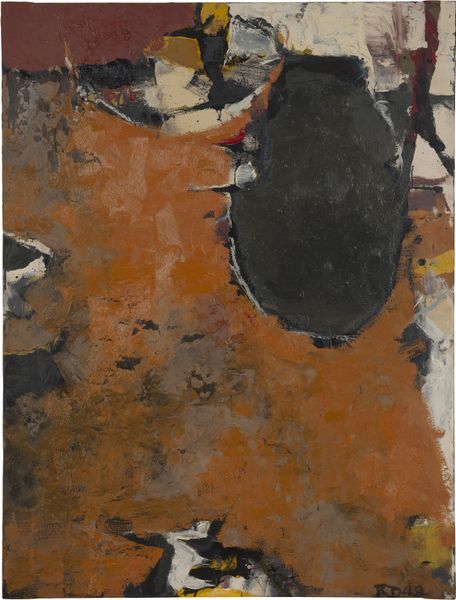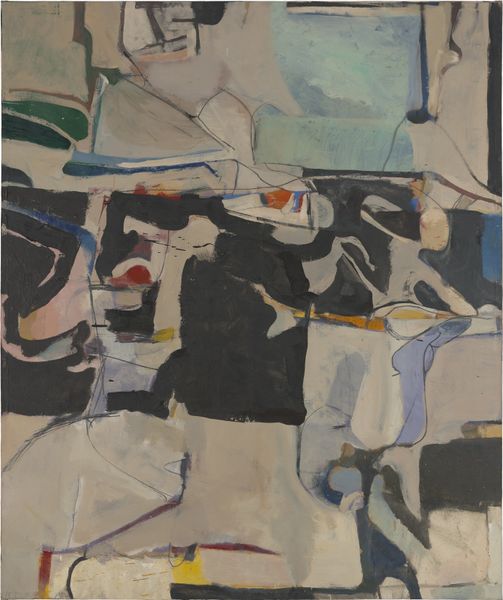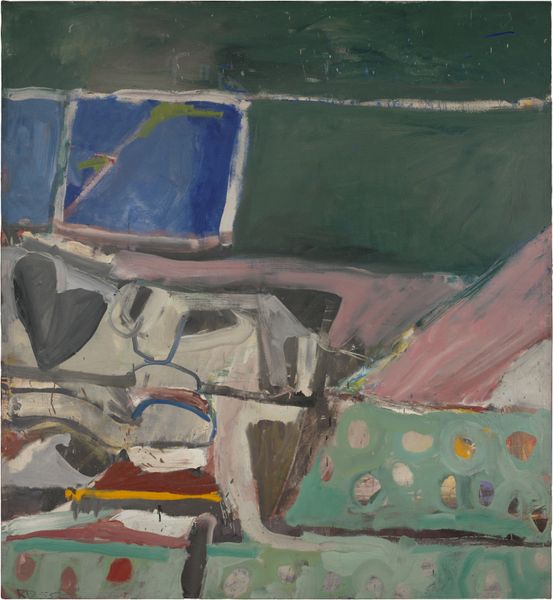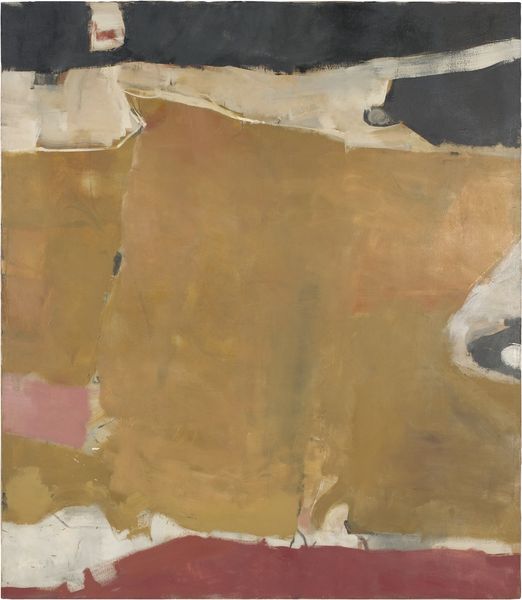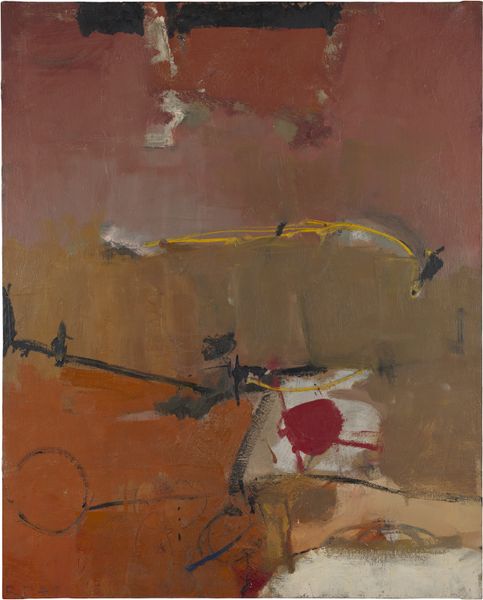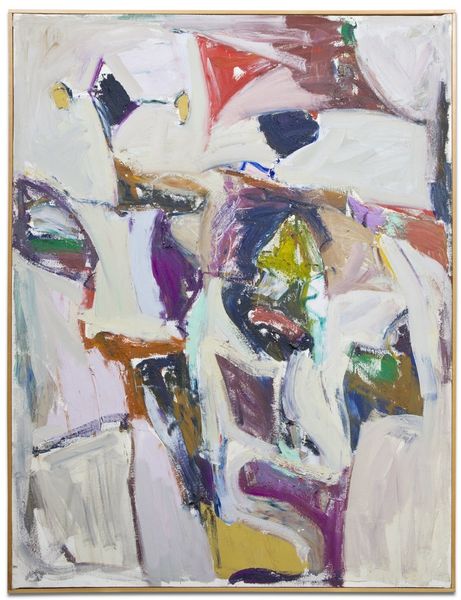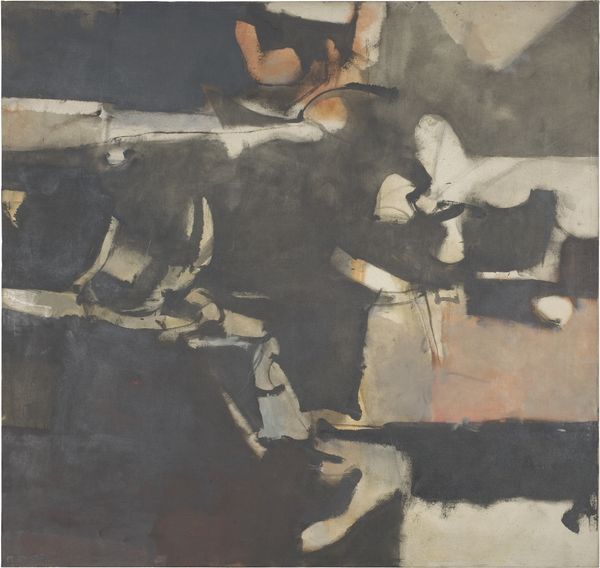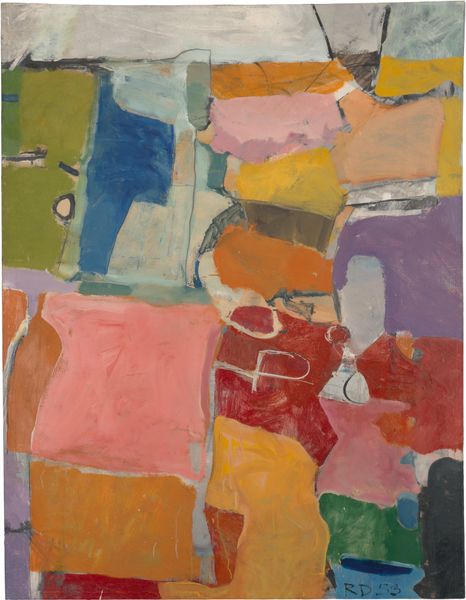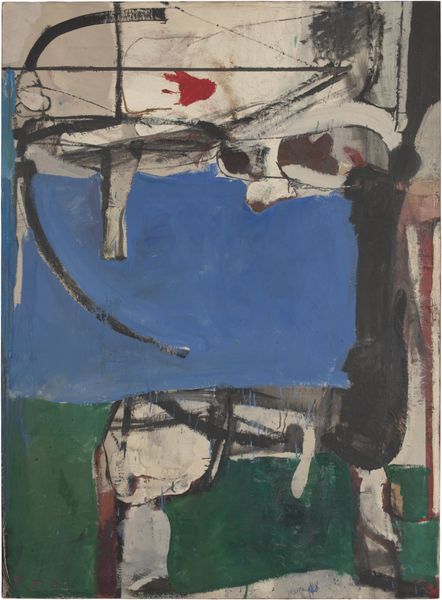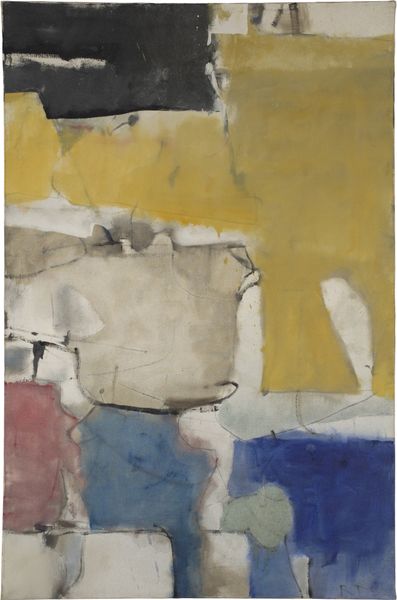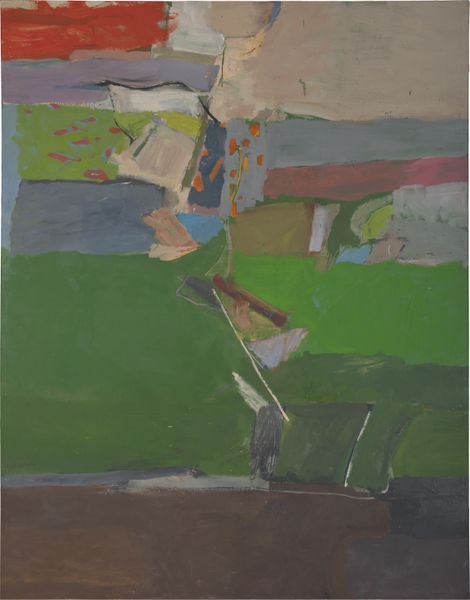
oil-paint, impasto
#
abstract-expressionism
#
abstract painting
#
oil-paint
#
oil painting
#
impasto
#
bay-area-figurative-movement
#
abstraction
Dimensions: 121.3 x 109.2 cm
Copyright: Richard Diebenkorn Foundation
Curator: We are standing before Richard Diebenkorn's "Berkeley #7," an oil painting from 1953. It exemplifies his early explorations in abstract expressionism. What's grabbing your attention first? Artist: It's mood. Definitely moody. So much dark paint... It's as if a lighter, more playful painting is struggling to emerge from this inky abyss. You feel that struggle in the textures. Curator: Indeed, the materiality is central. The impasto technique—the thick layering of paint—invites interpretation. In the context of post-war America, Abstract Expressionism becomes this space where artists explore individual agency against backdrops of conformity, anxiety, and sociopolitical tensions, reflecting, in this instance, a tension between liberation and restriction. Artist: Yeah. Makes me think about being a kid, layering dark colors over lighter ones, then scratching away at the top layers, just a little, to reveal the light trapped underneath. There’s something deeply primal and playful at once in the revealing, the hinting. I wonder if the work of artists who influenced his approach at the time could also explain these shades? Curator: No doubt, artists such as Mark Rothko and Clyfford Still who he clearly admired play a role. Furthermore, let us think about the location too. He produced this work while based in Berkeley. Given the socio-political context in Berkeley at that moment, what's rendered or even obfuscated becomes as crucial to consider. Is this abstraction a gesture to freedom, or a confinement of that? Artist: So true. Now that you mention that, do you think that pinkish blotch, almost floral in the bottom, to mean liberation, or, perhaps conversely, do the vertical marks on the bottom right give you jail-like feelings? In my own work, such intuitive and unconscious feelings or impositions usually say a lot about myself in ways I do not necessarily intend, do you think that's also the case for Diebenkorn? Curator: The intentionality is not quite known, but if we apply to his work such interpretive gestures from identity or feminist perspectives, or think about the politics behind abstraction at the time, it enables interesting narratives around agency, confinement, resistance... It prompts interesting discussion. Artist: For sure. I feel as if I got a tiny glimpse of a memory from my early childhood that I had entirely forgotten through looking at this work today! Curator: Absolutely. A canvas of the personal meeting sociopolitical implications, then.
Comments
No comments
Be the first to comment and join the conversation on the ultimate creative platform.
